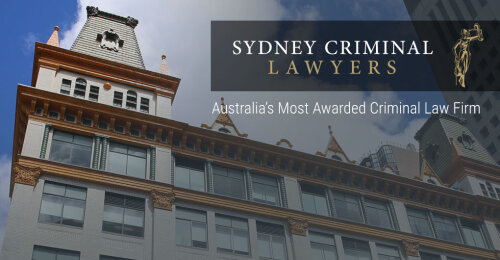Best Appeal Lawyers in Sydney
Share your needs with us, get contacted by law firms.
Free. Takes 2 min.
List of the best lawyers in Sydney, Australia
About Appeal Law in Sydney, Australia
Appeal law in Sydney, Australia encompasses the process of challenging a decision made by a court or tribunal in a higher court. The framework is designed to ensure justice and fairness by allowing parties to seek a reconsideration of a judgment they believe is incorrect due to legal error, procedural mistakes, or an unjust outcome. This legal domain covers various case types such as civil, criminal, family, and administrative appeals. Appeals must be grounded in valid legal reasons and follow specific procedural rules within the judicial system of New South Wales, where Sydney is located.
Why You May Need a Lawyer
Appeals can be complex and technically demanding, requiring specialized legal knowledge and experience. Some common situations where individuals may require a lawyer for appeals include:
- Disagreeing with a verdict in a criminal case and needing to challenge the conviction or sentence.
- Believing that there was a legal error or oversight in a civil court decision that adversely affected the outcome.
- Facing an unfavorable family law decision regarding matters such as custody or property settlement.
- Seeking to overturn a ruling by an administrative body on issues like immigration, social services, or local council regulations.
Local Laws Overview
In Sydney, appeal proceedings are governed by specific rules applicable to each court and tribunal. The New South Wales Court of Appeal and the Supreme Court are key venues for these proceedings, handling both civil and criminal appeals. Some notable aspects of the appeal process in Sydney include:
- The requirement for leave to appeal in certain cases, meaning permission must be obtained before proceeding with an appeal.
- The strict time limits for filing an appeal, which vary depending on the court or tribunal from which the appeal is sought.
- The principle that new evidence is generally not admissible unless it is in the interest of justice, emphasizing the appeal as a review process.
Frequently Asked Questions
What is the difference between an appeal and a retrial?
An appeal is a process to review the decision of a lower court for legal errors, while a retrial involves a new trial with all proceedings starting afresh, generally only ordered if the appeal identifies serious errors.
How long do I have to lodge an appeal?
The time limit varies, but generally, you have 28 days from the date of the decision to lodge an appeal in civil and criminal cases in New South Wales. It's crucial to check specific timelines for different courts.
Can I appeal any court decision?
Not all decisions can be appealed; some may require leave to appeal. Generally, errors in law, significant procedural mistakes, or manifestly unjust outcomes are grounds for appeal.
What happens during an appeal hearing?
During an appeal hearing, arguments are presented to a panel of judges about why the original decision should be upheld or altered. No new evidence is typically introduced.
Do I need a lawyer to file an appeal?
While a lawyer is not mandatory, it is highly recommended due to the complexity of the legal arguments and procedural requirements involved in an appeal.
What is an appellate court?
An appellate court reviews the decisions of lower courts upon appeal, focusing on legal errors rather than re-evaluating factual evidence or testimony.
Is my appeal guaranteed to be heard?
Not all appeals are guaranteed to be heard, especially if leave is required, and the appellate court determines there are grounds to proceed.
What are the costs associated with filing an appeal?
Costs can include court filing fees, legal representation, and potentially costs awarded to the other party if your appeal is unsuccessful. Specific fees depend on the court.
Can an appeal verdict be further appealed?
In some cases, a decision from an appellate court can be appealed to a higher court, such as the High Court of Australia, usually requiring special leave.
How can I prepare for an appeal?
Preparation includes thoroughly understanding the reasons for appealing, collecting legal documents, and consulting with an experienced appeal lawyer for representation and advice.
Additional Resources
For those in need of further assistance or information on appeals, the following resources can be invaluable:
- The Law Society of New South Wales, which offers a search for legal practitioners specializing in appeals.
- Legal Aid New South Wales provides legal assistance and resources for eligible individuals facing appeal proceedings.
- The New South Wales Department of Justice offers guides and documentation on court practices and procedures.
- Community legal centers can provide free legal advice and support for individuals pursuing an appeal.
Next Steps
If you believe you have grounds for an appeal, the following steps can help you move forward:
- Consult with a lawyer specializing in appeal law to assess the merits of your case and provide guidance on the appeal process.
- Gather all relevant documents, such as court transcripts, decisions, and evidence of the legal errors or procedural mistakes identified.
- Adhere strictly to the timeline required for filing an appeal to ensure your application is considered.
- Prepare a clear argument that outlines the reasons for your appeal, with the assistance of legal counsel to strengthen your case.
Lawzana helps you find the best lawyers and law firms in Sydney through a curated and pre-screened list of qualified legal professionals. Our platform offers rankings and detailed profiles of attorneys and law firms, allowing you to compare based on practice areas, including Appeal, experience, and client feedback.
Each profile includes a description of the firm's areas of practice, client reviews, team members and partners, year of establishment, spoken languages, office locations, contact information, social media presence, and any published articles or resources. Most firms on our platform speak English and are experienced in both local and international legal matters.
Get a quote from top-rated law firms in Sydney, Australia — quickly, securely, and without unnecessary hassle.
Disclaimer:
The information provided on this page is for general informational purposes only and does not constitute legal advice. While we strive to ensure the accuracy and relevance of the content, legal information may change over time, and interpretations of the law can vary. You should always consult with a qualified legal professional for advice specific to your situation.
We disclaim all liability for actions taken or not taken based on the content of this page. If you believe any information is incorrect or outdated, please contact us, and we will review and update it where appropriate.















